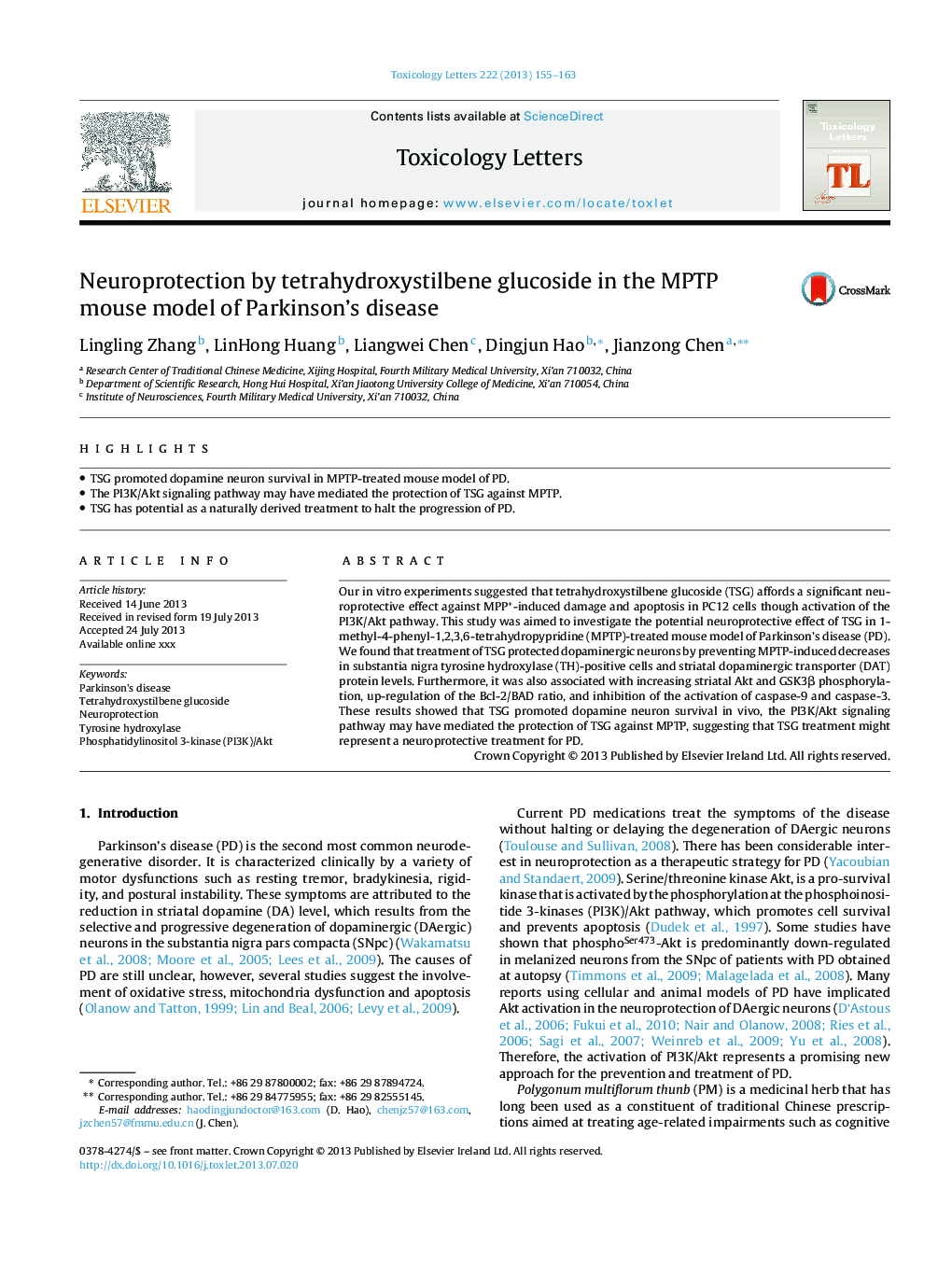| Article ID | Journal | Published Year | Pages | File Type |
|---|---|---|---|---|
| 5860541 | Toxicology Letters | 2013 | 9 Pages |
Abstract
Our in vitro experiments suggested that tetrahydroxystilbene glucoside (TSG) affords a significant neuroprotective effect against MPP+-induced damage and apoptosis in PC12 cells though activation of the PI3K/Akt pathway. This study was aimed to investigate the potential neuroprotective effect of TSG in 1-methyl-4-phenyl-1,2,3,6-tetrahydropypridine (MPTP)-treated mouse model of Parkinson's disease (PD). We found that treatment of TSG protected dopaminergic neurons by preventing MPTP-induced decreases in substantia nigra tyrosine hydroxylase (TH)-positive cells and striatal dopaminergic transporter (DAT) protein levels. Furthermore, it was also associated with increasing striatal Akt and GSK3β phosphorylation, up-regulation of the Bcl-2/BAD ratio, and inhibition of the activation of caspase-9 and caspase-3. These results showed that TSG promoted dopamine neuron survival in vivo, the PI3K/Akt signaling pathway may have mediated the protection of TSG against MPTP, suggesting that TSG treatment might represent a neuroprotective treatment for PD.
Keywords
Related Topics
Life Sciences
Environmental Science
Health, Toxicology and Mutagenesis
Authors
Lingling Zhang, LinHong Huang, Liangwei Chen, Dingjun Hao, Jianzong Chen,
